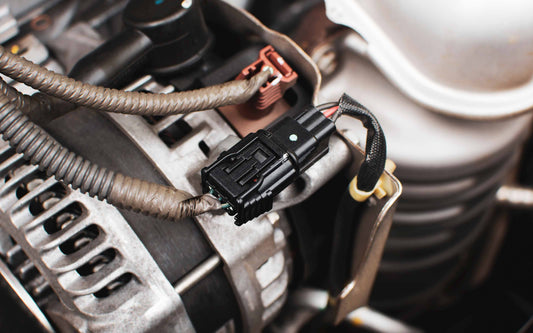When it comes to choosing the right alternator for your vehicle, understanding the differences between standard and high-output alternators is crucial. Each type has its own set of features, benefits, and ideal applications. This guide will help you make an informed decision based on your specific vehicle needs.
Understanding Standard Alternators
Standard alternators are typically designed to meet the factory specifications of most vehicles. They are sufficient for powering basic electrical needs such as lighting, ignition systems, and standard electronic devices.
Benefits
- Adequate Power for Basic Needs: Provides enough power for the essentials, keeping your vehicle running smoothly under normal conditions.
- Cost-Effective: Generally less expensive than high-output models, making them a good choice for standard use without additional electronic demands.
- Widely Available: Easy to find replacements or repairs due to their common use in most vehicles.
Ideal Applications
- Everyday passenger vehicles with no significant modifications.
- Vehicles that don’t have high-demand electrical accessories.
Exploring High-Output Alternators
High-output alternators are designed to provide significantly more power than standard alternators. They are ideal for vehicles that have higher energy demands due to additional accessories like high-performance audio systems, additional lighting, or other aftermarket electronics.
Benefits
- Enhanced Power Supply: Delivers more amperage for running multiple high-demand devices simultaneously without draining the battery.
- Increased Durability: Often built to tougher standards to handle the extra load, ensuring longevity and reliability.
- Optimal Performance: Maintains better voltage stability under heavy loads, improving the overall performance of the vehicle's electrical system.
Ideal Applications
- Vehicles with heavy electronic usage such as audio systems, additional lights, winches, or other aftermarket additions.
- High-performance vehicles that require more power for enhanced operations.
- Emergency vehicles that need to run critical systems reliably.
Key Differences to Consider
- Power Output: High-output alternators can provide twice or even three times the amperage of standard alternators, making them suitable for power-intensive applications.
- Size and Compatibility: High-output alternators may be larger or require specific modifications to fit in your vehicle, whereas standard alternators typically match the original specifications.
- Price Point: Investing in a high-output alternator is generally more costly upfront, but for those requiring extra power, it is a worthwhile investment.
Pure Power Alternators: Making the Right Choice
Choosing the right alternator boils down to what your vehicle needs and how you use it. If your vehicle is equipped with a lot of aftermarket electronics or if you need steady power for demanding uses, a high-output alternator is probably the way to go. On the other hand, if your vehicle's demands are more basic and don't require a lot of power, a standard alternator will do the job.By understanding these differences, you can make a decision that suits your vehicle's needs and improves your overall driving experience.
Whether you choose the powerful performance of a high-output alternator or the straightforward efficiency of a standard one, make sure it matches your vehicle’s requirements and your expectations.








